Related Research Articles
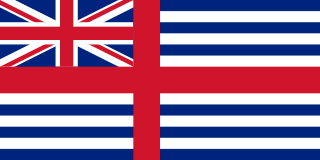
Van Diemen's Land was the colonial name of the island of Tasmania used by the British during the European exploration of Australia in the 19th century. A British settlement was established in Van Diemen's Land in 1803 before it became a separate colony in 1825. Its penal colonies became notorious destinations for the transportation of convicts due to the harsh environment, isolation and reputation for being inescapable. Macquarie Harbour and Port Arthur are among the most well-known penal settlements on the island.

The First Fleet was a fleet of 11 British ships that brought the first British colonists and convicts to Australia. It was made up of two Royal Navy vessels, three store ships and six convict transports. On 13 May 1787 the fleet under the command of Captain Arthur Phillip, with over 1400 people, left from Portsmouth, England and took a journey of over 24,000 kilometres (15,000 mi) and over 250 days to eventually arrive in Botany Bay, New South Wales, where a penal colony would become the first British settlement in Australia.

The Colony of New South Wales was a colony of the British Empire from 1788 to 1901, when it became a State of the Commonwealth of Australia. At its greatest extent, the colony of New South Wales included the present-day Australian states of New South Wales, Queensland, Victoria, Tasmania, and South Australia, the Northern Territory as well as New Zealand. The first "responsible" self-government of New South Wales was formed on 6 June 1856 with Sir Stuart Alexander Donaldson appointed by Governor Sir William Denison as its first Colonial Secretary.
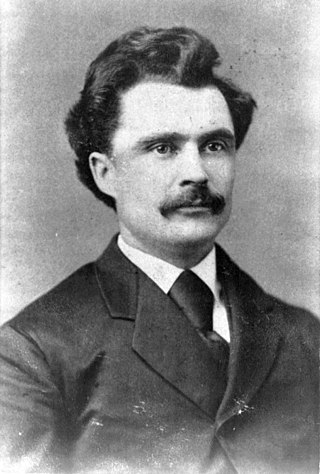
John Boyle O'Reilly was an Irish poet, journalist, author and activist. As a youth in Ireland, he was a member of the Irish Republican Brotherhood, or Fenians, for which he was transported to Western Australia. After escaping to the United States, he became a prominent spokesperson for the Irish community and culture through his editorship of the Boston newspaper The Pilot, his prolific writing and his lecture tours.
Joseph Wild (1759–1837) held a number of titles throughout his life, namely a convict, explorer, shepherd, constable and conveyor. He was convicted of burglary and was eventually sentenced to transportation to Australia. This was a common punishment for English convicts during this time period. It was during his time in Australia that Joseph Wild became known for being an explorer. His significance to Australian history stems from his discoveries within the Australian interior. He is most recognised for his contributions to the "discovery of Canberra," Sutton Forest, Jervis Bay, Bathurst, "Wildes Meadow," the discovery of Lake George and the Mongolo river.
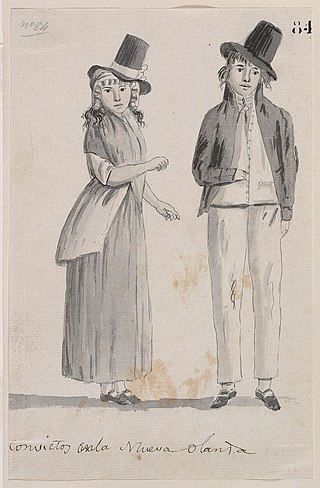
Between 1788 and 1868, about 162,000 convicts were transported from Great Britain and Ireland to various penal colonies in Australia.

Hougoumont was the last convict ship to transport convicts to Australia.
James Hannell was an auctioneer, publican, and Australian politician elected as a member of the New South Wales Legislative Assembly, the first mayor of Newcastle, and the first mayor of Wickham.
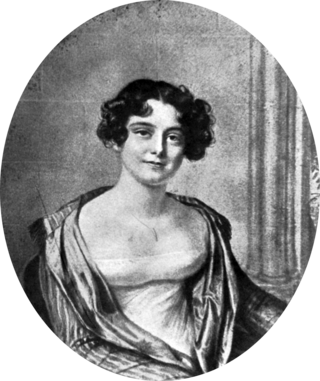
Jane, Lady Franklin was the second wife of the English explorer Sir John Franklin. During her husband's period as Lieutenant-Governor of Van Diemen's Land, she became known for her philanthropic work and her travels throughout south-eastern Australia. After John Franklin's disappearance in search of the Northwest Passage, she sponsored or otherwise supported several expeditions to determine his fate.
John Francis was one of a party of bushrangers who held up the Melbourne Private Escort Company's regular escort of gold from the McIvor diggings at Heathcote, Victoria and Kyneton on the morning of 20 July 1853. At least six men were involved, five of whom including Francis and his brother, George Francis, were apprehended. His brother committed suicide while in custody, but by turning Queen's Evidence, Francis escaped punishment and the other three companions were hanged.
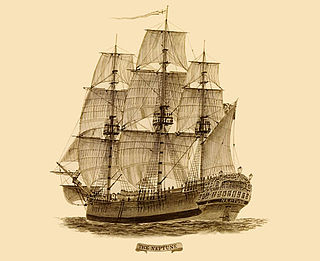
A convict ship was any ship engaged on a voyage to carry convicted felons under sentence of penal transportation from their place of conviction to their place of exile.

The Lynton Convict Hiring Depot (1853–1857) was the first convict depot north of Fremantle, Western Australia. It was established on 22 May 1853 with the arrival of the 173 ton brigantine Leander, which transferred 60 ticket-of-leave convicts and Pensioner Guards that had arrived at Fremantle on the Pyrenees on 1 May. It was established to supply labour to the Geraldine Lead Mine, 64 kilometres north of the site on the Murchison River, and to local settlers. The depot was closed by order of Governor Kennedy on 3 January 1857 due to the high cost to the government of its maintenance.
Events from the year 1859 in Ireland.

HMCS Fort Frances was an Algerine-class minesweeper that served in the Royal Canadian Navy during the Second World War. She served primarily as a coastal convoy escort in the Battle of the Atlantic. The ship was named for Fort Frances, a town in northwestern Ontario. Following the war, the vessel was transferred to the Department of Mines and Technical Surveys and used for hydrographic and oceanographic survey. The vessel was discarded in 1974 and broken up for scrap.
Convict women in Australia were British prisoners whom the government increasingly sent out during the era of transportation (1787-1868) in order to develop the penal outpost of New South Wales into a viable colony.
Francis MacNamara, known as Frank the Poet, was an Irish writer, a convict, transported to the Colony of New South Wales, Australia from Cashel, County Tipperary, Ireland, he composed improvised verse expressing the convict's point of view.
Empire Caicos was a 3,533 GRT cargo ship which was built in 1945 for the Ministry of War Transport (MoWT). She was sold in 1946 and renamed Sugar Transporter. In 1957 she was sold and renamed Pattawilya. In 1962, she was sold and renamed Clovelly, serving until she was damaged in a storm in 1967 and then scrapped later that year.
A number of sailing ships have been named Frances:
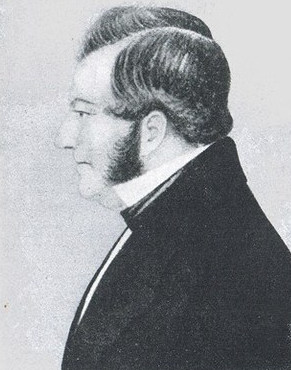
Daniel Scott was a Western Australian harbour-master. Originally from Liverpool, England, he moved to the newly established Swan River Colony in 1829. Scott was the first chair of the Fremantle Town Trust in 1848. In addition to his civic and harbour duties, he was involved with launching a number of enterprises in early Western Australia, including the first whaling business, the first ship builders, and a lead mining business.
Hooghly was a full-rigged merchant ship built on the Thames, England, and launched in 1819. She made two voyages under charter to the British East India Company (EIC), four voyages transporting convicts from England and Ireland to Australia, as well as voyages transporting emigrants to South Australia between 1839 and 1856. Around 1858 she was re-rigged as a barque. She sank off Algiers in 1863.
References
- "Western Australian Convicts – Frances 1859" . Retrieved 16 February 2006.
- ↑ The Inquirer and Commercial News (Perth), 23 November, 1859, p2: Shipping Intelligence